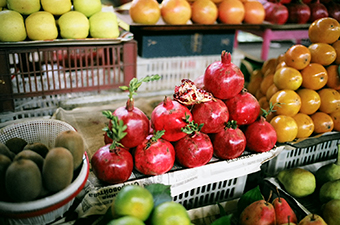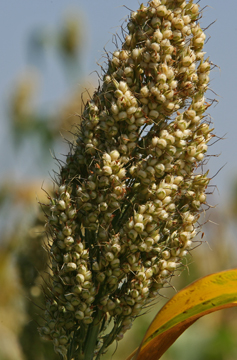Research Brief
Improving Food Security
What Works and What Could Work?
- Current international agricultural development and food security systems are ill-prepared to address the global agriculture, food and nutrition problems.
- Structural reforms are necessary to deliver the essential international public goods for improved food security; better co-ordination in the existing system would not be enough.
The acute food price crisis in 2008 demonstrated the urgent need to reform the world food and agricultural system and the governance of its international dimensions. Although the crisis alerted the donor community to the inadequacies of current systems, subsequent responses have not been adequate to address and prevent future crises. Current policies still focus on reacting to, rather than preventing, food emergencies and fail to address the chronic food problems effectively. A global nutrition policy is slowly emerging while nutrition and hunger problems persist with looming global repercussions.
Faced with insufficient investment in research and development and inadequate programmes to reduce the risks associated with climate change, the agriculture and food security sectors must overcome many obstacles in order to enact appropriate reforms for greater effectiveness. In order to determine what kind of reforms are feasible and could engender positive changes, it is important to understand what works and what could work to improve international co-operation over food security.
 Assessment framework
Assessment framework
The global food equation of supply and demand is changing and remains under stress. The emerging bioeconomy redefines the landscape of agriculture with increased linkages to energy. A nexus-perspective is needed, that looks beyond sectors and especially connects water, land use, food and energy. Food systems are becoming more integrated into the larger economy; the protracted poverty and food insecurity of small farm households is a challenge, and the environmental and climate change aspects of agriculture need to be addressed.
Public goods needed to alleviate rural poverty include peace and security, rule of law, education, healthcare, natural resources, and environmental quality. A development approach involving international public goods (IPGs) requires careful consideration of the risks and uncertainties for marginalized populations and for sustainable development. Many public goods are provided at a national level but some related to trans-national issues such as trade rules, food safety and research have large international spill-overs and need to be provided at international levels. Additionally, a complex web of government networks, in collaboration with corporations, NGOs, etc. also now participates in the process of international agricultural development. We inherited a set of institutions partly plagued by messy structures and a lack of co-ordination, leading to inefficient responses and critical holes in global food governance.
Proposal for redesign
Which then, counts as an international public good in relation to agriculture? Any goods identified must focus on people and their rights in order to directly or indirectly improve the well-being and protection of target populations.
Following this guideline, a set of seven essential international public goods can be outlined:
-
 Natural resource management related to biodiversity, water and soils
Natural resource management related to biodiversity, water and soils
- A comprehensive convention covering these issues is not in place.
-
Climate change adaptation and mitigation
- Adequate research, monitoring and institutions are crucial if attempts to mitigate and adapt to climate change are to be successful.
-
Trade and food reserves
- Global level regimes that might reduce food price volatility and extreme price spikes are particularly important.
-
Competition policy and standards for foreign direct investment (FDI)
- Appropriate rules for assuring fairness and efficiency enhancing international investment policies guiding FDI for both sides of investment are becoming increasingly relevant as agriculture becomes a more globally integrated sector.
-
International research and innovation
- Recognizing that science has a significant role to play for international economic development is an important first step toward a science policy for agricultural development.
-
Responding to and preventing food and nutrition emergencies
- Food assistance in failed states and war-affected regions remains a tremendous challenge that goes far beyond food agency capacities.
-
Transboundary food safety and health-related investments and standards
- The international food trade and the demands by consumers for sound standards makes food safety information parts an essential international public good.
With an understanding of the deficiencies of the current agriculture and food security systems, changes can be implemented to improve the effectiveness of institutional arrangements to provide these IPGs. This review proposes several major reforms: the FAO should be reinvented and strengthened; global nutrition policy needs an organizational home and should not be split among five agencies; the World Food Programme needs a global food store and funding that permits a flexible response. Basically, institutional reforms should be arranged around a set of three focus areas:
- Food and nutritional security of the poor
- Protection of natural resources
- Enhanced sustainable intensification and productivity growth
- Improved institutional arrangements for the provision of international public goods can improve agricultural development and food security;
- A set of umbrella organizations for international agriculture and food and nutrition security is needed;
- Redesign of arrangements should be gradual and include NGOs and business actors and emphasize government-to-government networking.
In addition, a science-based international assessment mechanism for agriculture, food and nutrition should be established, mapped along the lines of the Intergovernmental Panel on Climate Change (IPCC), because policy needs much stronger evidence-based guidance from the whole international research community for enhanced agricultural development and food and nutrition security.
A gradual but clearly outlined approach toward redesign, partly based on current building blocks of international organizations can be implemented, allowing more involvement of NGOs and businesses, as well as intensified government-to-government networking for international public goods delivery. This will require leadership, especially by UN and G20.
 Join the network
Join the network